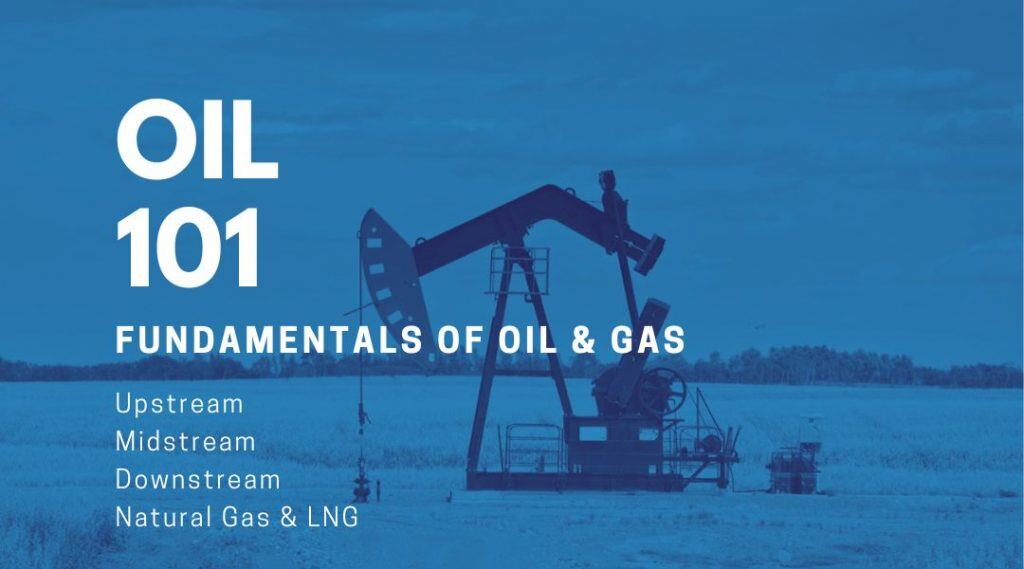What is HSE in Oil and Gas?
HSE (Health, Safety, and Environment) in the oil and gas industry refers to the policies, procedures, and practices put in place to protect workers, the environment, and the public from harm associated with oil and gas operations.
The oil and gas industry has some of the most hazardous and high-risk work environments, and the implementation of effective HSE programs is critical to ensuring the safety and well-being of workers, as well as protecting the environment.

Whether it’s oil and gas, power, or renewables that is your chosen career path, our e-learning courses can help you get a leg up on the competition and get your food in the door.
We often hear from learners who successfully use our courses to prepare for the interview process. After all, you’re using the same courses that companies themselves use to prepare their teams.
As this student passed on:
I would like to thank you for your brilliant Oil 101 materials. I did use it to prepare for the recruitment process, and managed to take a new role in the oil and gas industry!
Get started with our Energy 101 courses today!
HSE in the oil and gas industry involves a range of activities, including:
- Risk assessments: Identifying and assessing potential hazards and risks associated with oil and gas operations.
- Safety procedures: Developing and implementing procedures to mitigate identified risks and hazards, including equipment and facility maintenance, emergency response plans, and personal protective equipment (PPE) requirements.
- Training and education: Providing employees with appropriate training and education on HSE policies and procedures, as well as safe work practices.
- Monitoring and compliance: Monitoring compliance with HSE policies and procedures, and conducting regular audits and inspections to identify areas for improvement.
- Incident reporting and investigation: Reporting and investigating incidents and near-misses to identify root causes and develop strategies to prevent future incidents.
- Environmental management: Implementing environmental management programs to minimize the impact of oil and gas operations on the environment, including air, water, and land resources.
Effective HSE programs in the oil and gas industry can result in reduced workplace accidents, injuries, and fatalities, as well as reduced environmental impacts.
HSE is a critical aspect of the oil and gas industry and requires ongoing commitment and investment from all stakeholders to ensure a safe and sustainable industry.
What are some HSE Jobs in Oil and Gas?
HSE (Health, Safety, and Environment) jobs in the oil and gas industry are essential roles that focus on ensuring the safety and well-being of workers, protecting the environment, and promoting sustainability in oil and gas operations.
Here are some common HSE jobs in the oil and gas industry:
- HSE Manager: Responsible for developing, implementing, and maintaining HSE programs and policies in compliance with regulatory requirements and industry standards.
- HSE Coordinator: Supports the HSE Manager by managing HSE data and records, developing training programs, and coordinating incident reporting and investigation.
- Safety Officer: Focuses on developing and implementing safety procedures and policies, conducting safety audits and inspections, and ensuring compliance with safety regulations.
- Environmental Specialist: Focuses on minimizing the environmental impact of oil and gas operations, including air, water, and land resources. Develops and implements environmental management programs and monitors compliance with environmental regulations.
- HSE Trainer: Develops and delivers training programs on HSE policies and procedures, safe work practices, and emergency response.
- Risk Management Specialist: Identifies and assesses potential risks and hazards associated with oil and gas operations, and develops strategies to mitigate these risks.
- HSE Inspector: Conducts inspections and audits of oil and gas facilities and operations to ensure compliance with HSE policies, regulations, and standards.
These are just a few examples of HSE jobs in the oil and gas industry. HSE is a critical aspect of the industry, and there are many different roles and opportunities for professionals with HSE expertise.
What are HSE Job Salaries?
HSE (Health, Safety, and Environment) job salaries in the oil and gas industry can vary depending on the job title, level of experience, location, and other factors.
Here are some average salary ranges for common HSE jobs in the oil and gas industry, based on data from various sources:
- HSE Manager: $85,000 – $155,000 per year
- HSE Coordinator: $45,000 – $80,000 per year
- Safety Officer: $55,000 – $95,000 per year
- Environmental Specialist: $55,000 – $105,000 per year
- HSE Trainer: $45,000 – $85,000 per year
- Risk Management Specialist: $70,000 – $125,000 per year
- HSE Inspector: $45,000 – $85,000 per year
It’s important to note that these salary ranges are general estimates, and actual salaries may vary based on individual qualifications and other factors.
Additionally, salaries may be higher for HSE jobs in the oil and gas industry that require specialized expertise or experience.
Related Resources
Jobs Data:
Global Energy Talent Index (GETI)
US Energy & Employment and Jobs Report (USEER)
Career Path in Energy Articles
Is Oilfield Services/Equipment a Good Career Path
Is Oil and Gas Production a Good Career Path
Is Electric Utilities a Good Career Path
Is Power Generation a Good Career Path